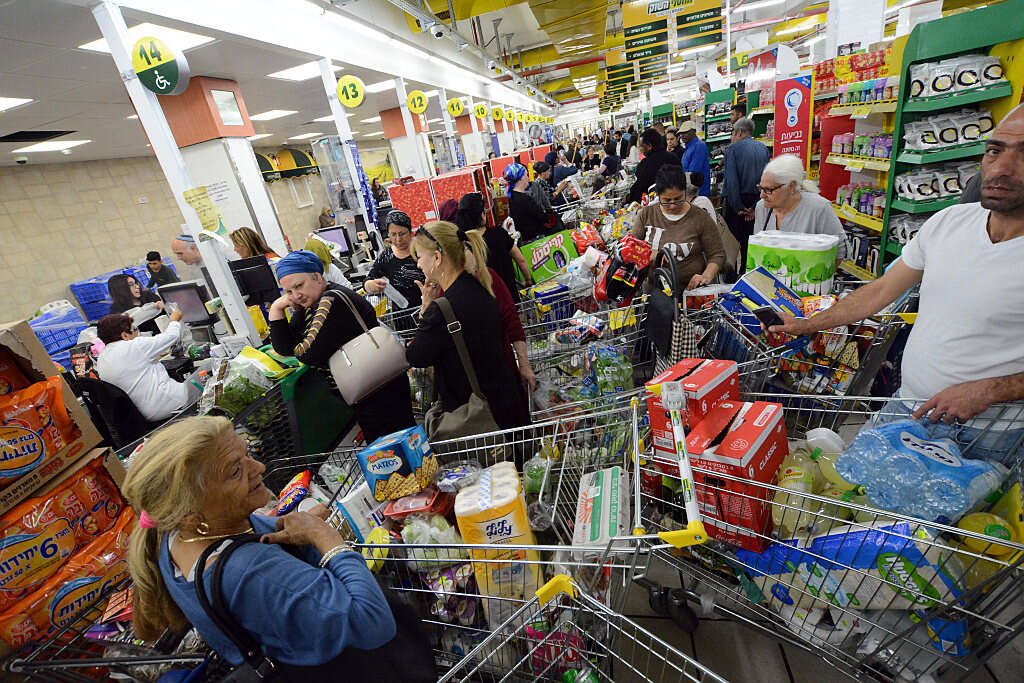The explosive combination of the Corona crisis together with the war between Russia and Ukraine, ignited a wave of price increases, which did not escape many countries around the world and also Israel.
In attempts to calm the public uproar surrounding the issue, the politicians usually mention that the level of inflation in Israel is twice as low as in Europe and the US. However, the initial price level in Israel is so high that even after the wave of price increases that swept Europe, the prices of basic products there are still tens of percent lower than in Israel. So why, for example, is the same Colgate toothpaste 40% cheaper in Barcelona and London than in Israel?
One of the main reasons for the high cost of living in Israel is the lack of sufficient competition, or in other words - high concentration.
When a certain product category is dominated by 2-3 big players, the prices become quite similar, so there is practically no real competition.
The problem in Israel is that the high concentration characterizes too many product categories.
According to the Competition Authority, as of 2020, more than 90% of sales of consumer products such as yellow cheese, delicacies, water, and breast milk substitutes, were divided between only three large players.
The concentration is also high in the snacks category - a market segment of about 85% for the three big players, salty cheeses (82%), frozen vegetables (70%), oils (70%) and so on.
According to the competition authority, in the field of toiletries there is a particularly high concentration of the following products: diapers - a market segment of 95% for the three major players;
Bleach products - 91%;
Toilet paper, toothpastes and feminine hygiene products - close to 90%.
As mentioned, the high concentration in Israel is one of the reasons for the high prices in all, and in the field of imported products in particular, and this affects their high level of profitability.
The Chief Economist's report, published in February of this year, showed that "the profitability rates of the large private importers of food and toiletries are significantly higher than the rest of the importers in the industry.
In 2019, the profitability rate of the large companies was 2.3 times higher than that of the other importers in the industry.
The ten largest importers in the food and toiletries sectors combined in 2019 about a fifth of the total turnover of the food and toiletries importers," the report states.
One of the companies included among the ten largest private importers in the same review is the Diplomat company, which has recently been at the center of the public storm.
The company became a public company last March, and since then its profitability figures are visible to the public.
About a week ago, the journalist Guy Lerer called for a consumer boycott of the company, and yesterday he was joined by Histadrut chairman Arnon Bar-David. Bar-David's speech was unusual and particularly strong, in which he called for a consumer boycott of the importers Diplomat, Shastovitz and Kimberly Clark, who recently announced the increase Prices at an average rate of about 10%.
The reason for the public outrage over Diplomat lies in the financial report that the company submitted to the stock exchange for the third quarter of 2021, which shows, among other things, the distribution of the company's sources of profit and sales according to areas of activity. Thus, the company, which operates in four other geographic areas besides Israel - South Africa, Georgia, New Zealand and Cyprus - states that Israel's contribution to total group profits is higher than the weight of sales in Israel in total group sales, and only in Cyprus is the relative contribution to profits higher.
According to the same report, the operating profit rate in Israel in the first nine months of 2021 was 5.1%, compared to a profitability rate of 2.4% in New Zealand, 3% in DRAP, 3.8% in Georgia and a profitability rate of 10.9% in Cyprus.
We discussed the findings of the inspection with Lobby 99, a non-profit socio-economic enterprise, which also deals extensively with the issue of the cost of living in Israel.
According to the people of Lobby 99, "The price differences in food between Israel and Europe continue to be high, but they are not a natural phenomenon over which we have no control, but the actions of the governments and regulators for generations. It is time to finally dismantle the unprecedented centralization of the large food companies, and fight the monopolies that control Without Egypt in the sales of all basic consumer products of all kinds - by opening up imports and increasing transparency on monopolies' profits. Also, the centralization of marketing chains must be reduced."
were we wrong
We will fix it!
If you found an error in the article, we would appreciate it if you shared it with us

